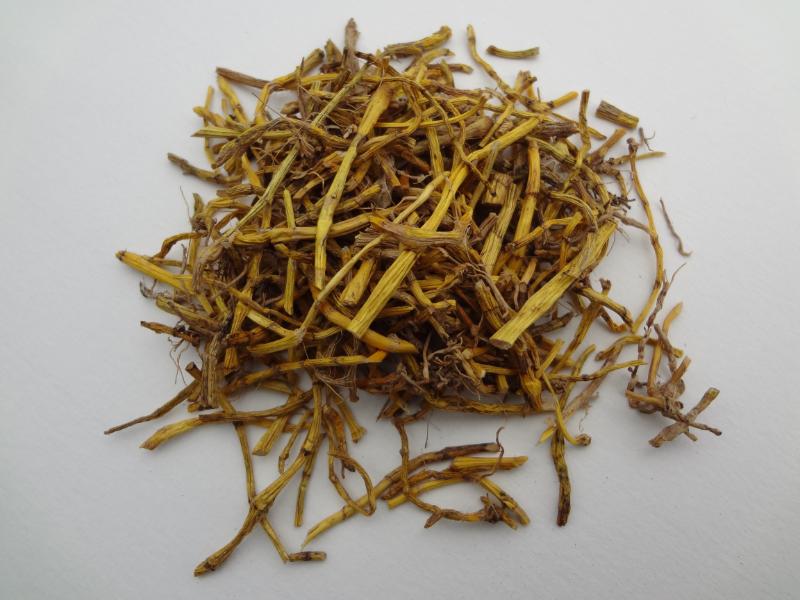Search in medicinals
Dendrobii Herba
Dendrobium
石斛 〔石斛〕 shí hú

Kingdom: Plant
Origin in PRC Pharmacopoeia: Dendrobium nobile Lindl.; Dendrobium loddigesii Rolfe; Dendrobium fimbriatum Hook. var. oculatum Hook.; Dendrobium chrysantum Wall.; Dendrobium candidum Wall. ex Lindle. (PRC Pharmacopoeia)
Origin in unofficial sources: Dendrobium nobile Lindl.*; Dendrobium linawianum Reichb. f.; Dendrobium officinale K. Kimura et Migo; Dendrobium moniliforme (L.) Sw.; Dendrobium hercoglossum Reichb. f.; Dendrobium aduncum Wall. et Lindl.; Dendrobium wilsonii Rolfe; Dendrobium hancockii Rolfe; Dendrobium lohohense Tang et Wang; Dendrobium loddigesii Rolfe*; Dendrobium bellatulum Rolfe; Dendrobium fimbriatum Hook. var. occulatum Hook.*; Dendrobium fimbriatum Hook. var. occulatum Hook.*; Dendrobium chrysantum Wall.*; Dendrobium candidum Wall. ex Lindle.*
Use: Medicinal
Category: Supplementing agents / Yīn-supplementing agents
Properties: Sweet; slightly cold.
Channel entry: Stomach and kidney channels.
Actions and indications:
- Nourishes yīn and clears heat: Damage to liquid in febrile disease.
- Nourishes the stomach and engenders liquid: Insufficiency of stomach yīn.
- Supplements kidney yīn: Steaming bone taxation heat, dim vision, and limp wilting sinews and bones, due to kidney yīn vacuity.
Dosage and method: Oral: 6–15g in decoctions. If the fresh form is used, the dose should be 15–30g.
Warnings: Shí hú is sweet and can constrain evil; it should not be used too early in febrile disease.
Product description: These are fine curved stems that are often split. Sometimes there are many stalks branching from one rhizome, with the stubble of fine roots. Stems vary from 8 to 12 cm in length and from 1 to 2 cm in diameter. The external surface is a golden yellow with conspicuous brown nodes at 1–2.5 cm intervals. The stems are supple, and when snapped reveal a loose fibrous interior. The decocting pieces are usually 2–4 cm lengths.
Quality: The best quality is a bright golden color, and highly supple.
Production area: Sìchuān, Guìzhōu, Guǎngxī.
Etymology: The name shí hú 石斛, literally stone dendrobium,
reflects the plant's ability to grow on rock.